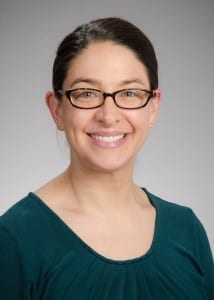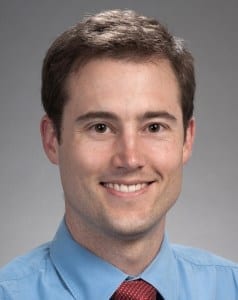Voices: Reflecting on an adverse outcome – perspectives from a trainer and a trainee
Reflecting on an adverse outcome – perspectives from a trainer and a trainee
This past spring, I performed a case that resulted in an intraoperative death. I could write extensively about the details of the case, the intraoperative management, and the institutional debriefing. None of that detracts from the fact that while under my surgical care, a person died. It’s much more difficult to write about that.

Renata Urban, MD
Late that night, I genuinely questioned whether I could go back to work. I was unsure as to whether I could or should disclose to my partners and my patients what happened. I was also unsure that I could stay away; how could I deal with and incorporate these events into my life if I shied away from the place that they had occurred? I ultimately did go back the next day – what helped move me forward was the support of my colleagues, my spouse and family, as well as counseling. I continue to learn a lot from this case, and now consider how we as surgeons and oncologists are required to quickly move on from adverse events and continue to perform at our highest level – sometimes this happens the next day, the next hour, maybe even the next appointment.1 Shouldn’t we allow ourselves space and time to process adverse events?
This leads me to reflect more on my co-surgeon for this case – my fellow. On the night of this case, and since then, I struggled with showing my emotions to this fellow and all fellows. I felt and am feeling guilt and grief. However, I also wanted to be a source of support for my fellows, and allow them their own space for their emotions. I also realized that whatever “space” I tried to find myself for recovery may not be possible for a fellow.
I don’t feel that I’ve moved on from this case, but I don’t think that I want to. I’d prefer to move forward and practice the medicine that I love in a space where I take the time and space I need to reflect on adverse outcomes, and where I encourage my fellows to do the same.
Renata R. Urban, MD, is an Associate Professor in Gynecologic Oncology at the University of Washington School of Medicine in Seattle, WA.

Christopher Morse, MD
Life as a gynecologic oncology fellow is incredibly demanding. Every day, we face difficult cases and patients. While on service you are constantly on the move – there is no down-time, there is always a patient to see, a case to scrub, or orders to sign. Every day I hope that I have enough energy to get to the end of the day. You learn to handle anything, you are unflappable, unbreakable. So what happens when something breaks you?
I knew the case above was going to be tough, but we do tough cases every day. I did not see it coming. After we finally called the time of death, it was nearing midnight. The OR, which had been noisy and chaotic for hours was now eerily quiet. I choked back my tears and looked at the floor. Sadly, my immediate next thought was how many hours until I had to return the next morning. Instead of dealing with this event, I went into survival mode. A patient had just died, but I turned off any emotions because there was no venue or time in which to process. I had to park my emotions and deal with them later in order to simply function when I returned to the OR the next day.
Healthcare providers involved in unanticipated adverse outcomes become the second victims. We feel responsible for what happened, that our actions led to failure. Fear, guilt, and anger dominate our emotions for months to years. Trainees are particularly susceptible to second victim syndrome as they may already be emotionally exhausted and experiencing burnout. Fellowship programs need to acknowledge when adverse events impact their trainees and provide “emotional first aid” in a supportive and blame-free environment.2
My attending and I met frequently after this event. We each processed our emotions at our own pace, but we helped each other through it, providing the support that can only come from someone who was there with you. I also gained strength from the support of my family, co-fellows, and prior co-residents who all helped me process. That day broke part of me, but with support at work and at home, I am slowly building myself back up.
Christopher Morse, MD, is a Gynecology Oncology Fellow at the University of Washington in Seattle, WA.
1Stiegler MP. What I learned about adverse events from Captain Sully – it’s not what you think. JAMA. 2015 Jan 27;313(4):361-2.
2Marmon LM, Heiss K. Improving surgeon wellness: The second victim syndrome and quality of care. Semin Pediatr Surg. 2015 Dec;24(6):315-8.